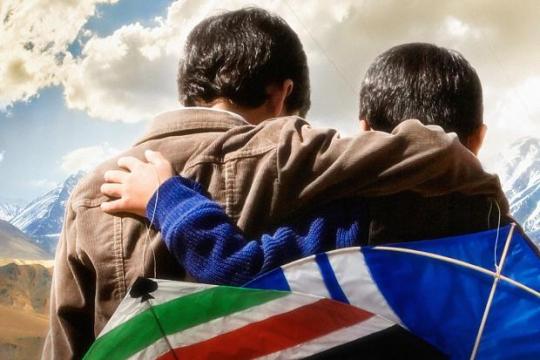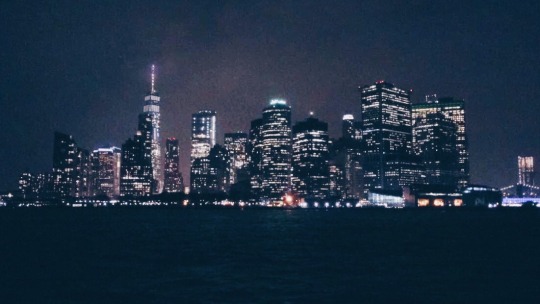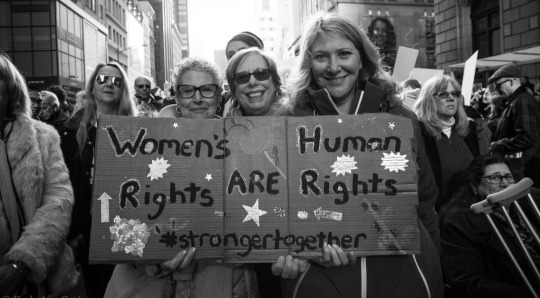Text
Small Actions, Large Consequences

When I was younger, I learned that one action that I thought could be harmless would eventually cause many consequences. In the novel The Kite Runner, Amir is the son of a wealthy Kabul merchant and a Pashtun. Hassan is their Hazara servant, but also Amir’s best friend. Their friendship is torn apart when Amir flees Kabul due to the political and religious tensions and Soviet invasion. However, many years later, a family friend calls Amir from Pakistan saying he could make up for all the wrongs he committed. With that, he journeys back home to right all the wrongs for his long-lost friend. This novel incites change in the world shown in the life of Amir who learns about friendship and kindness. Through these themes, one learns how small actions can lead to extreme consequences.
Over time, friendship has always proven to be one of the strongest things in the whole world. Hassan and Amir’s endless friendship shows how friendship can also transcend distance and all time. Although Hassan would always take the blame for Amir since they were always friends, Amir would always look down upon Hassan. He did this since Hassan “couldn’t read and had never written a single word in his entire life” (Hosseini 37). In his head, Hassan was just an “illiterate Hazara[, h]e’ll never be anything but a cook” (Hosseini 37). This shows how Amir would think of Hassan even though Hassan would practically do anything for Amir. It is clear to see that how Amir perceives Hassan should not be such a huge deal. However, his attitude and actions towards Hassan accumulates over time, therefore creating a large repercussion. Years later, Amir receives a call from Rahim Khan saying he could right all his wrongs if he went back to Afghanistan. Amir practically has the perfect life, a “wife in America, a home, a career, and a family” (Hosseini 238) by going back home, he could risk everything. Yet with this in mind, he truly believes that “there is a way to be good again… [as he thinks about] those twin kites” that they flew many times when they were younger (Hosseini 2). With that, he heads all the way back to Afghanistan, proving that their friendship transcends all distance and time. In addition, this shows that Amir’s actions and attitude, which he thought at the time were small things, created consequences that put him and his family at risk.
As friendship has been very prevalent, so has kindness. Throughout the novel, kindness slowly became a large and important part of the novel. After Amir was able to find Sohrab, he attempted to find a way to bring Sohrab back home as he promised Rahim Khan. However, after given several options, most of them seemed hopeless. The last option was to send Sohrab to an orphanage, then file an orphan petition. Although this was their best option, Amir did not “want to do that… [as he] promised him [he] wouldn’t send him back to an orphanage” (Hosseini 356). Eventually, they realize this is genuinely the best way to get Sohrab to America, taking the deal. He tells Sohrab about this plan and Sohrab is heartbroken and scared. He begs Amir not to take him there as he is “scared of that place, [claiming that] they’ll hurt [him]” (Hosseini 359). Luckily, Amir receives a call just in time as his friend was able to get a humanitarian visa for Sohrab. Amir is ecstatic and shouts exuberantly that “[they are] going to America” (Hosseini 360). Throughout this entire process, it could have been easy for Amir to let go of Sohrab and put Sohrab back into an orphanage but because of the kindness and love for both Sohrab and Hassan, he fights to make sure that Sohrab gets a family and the home he deserves. Later in the book, Sohrab arrives in America and Amir and his wife take him to the park to fly a kite. Amir teaches Sohrab the art of kite flying and as he does, he recalls the memories of doing so since “the last time [he] had felt a rush like this was that day in the winter of 1975, just after [he] had cut the last kite” (Hosseini 390). The kite falls down after a while and Amir asks Sohrab if he wants him to “run that kite for [him]” (Hosseini 391). He nods and tells him that “for [him], a thousand times over” (Hosseini 391). The love for Sohrab has grown continuously and will continue to grow because of Amir’s kindness. Throughout all the trials and tribulations, Amir has learned much about kindness and friendship. In addition, this novel has shown that one small action that could be thought as harmless can come around and cause a consequence. I believe this book shows the meaning of friendship and how kindness goes a long way. Amir’s journey across two different countries has not only taught the himself important lessons, but the readers as well. Small actions can have big consequences, it is up to the individual whether the consequences are negative or positive.
0 notes
Text
The Little Things - A Memoir

Since the moment I stepped into New York City, everything had captivated me. It is true, what they say, one belongs to New York instantly, one belongs to it as much in five minutes as in five years. Glancing up from my phone, I decided to head out to the balcony of the ferry as it carried me away from the city. Opening the door slowly, I was greeted with a blast of cold winds. I shuddered, taking a step forward then closed the door behind me. What met my sight next was absolutely stunning. The skyline of the one and only New York City was glimmering in the dark night sky, illuminating the water below us. Looking at this view, the feeling of cold just faded into thin air and everything seemed to disappear. You could only hear the wave crashing against the ferry boat, feel the gentle swaying as it did so and see the stunning skyline as it reflected off of the rough waters. I took a breath in, as if I was absorbing the beauty of it all. As we continued to drift away, the view never got old and continued to impress. Behind me, I heard the door open and I turned around to see my dad walk towards me.
“Beautiful, isn’t it?” he asked me softly. I nodded slowly and a small smile grew on my face.
“I swear… New York has a piece of my heart,” I reply and he chuckles quietly. “You say that every time, how do we know this is real?”
Sighing, I contemplate on his reply. He does make a good point as most places I have been to, I do say the same thing about many places. But New York City is different and always has been.
“Little things, little moments like these. Even this makes all the difference during our trip, not seeing the Statue of Liberty, but riding a boat seeing the skyline in all its glamour,” I tell him and look back at the shimmering skyline. He pats my back and walks back inside as I continue to look at the city and feel the gentle sway of the boat as it carries us further and further away.
0 notes
Text
Not Your Average Superhero

[UNIT PROMPT #4 - MEMOIRS]
What makes / defines a hero? What values do they possess or reflect?
Many things can define and make a hero, for example, courage or selflessness. In the memoir, My Left Foot, the value hope is shown. Throughout this story, many doctors, family and friends seem to always be losing hope that Christy would one day heal or be able to learn, but Christy’s mother never seemed to lose hope once. Although the doctors told her that he was “beyond cure, beyond saving, even beyond hope[, s]he could not and would not believe that [he] was an imbecile as the doctors told her” (Brown 2). She believed that her son was still there and that “[his] body was crippled, [not his] mind” (Brown 2). One day, Brown “reached out and took [a] stick of chalk out of [his] sister’s hand - with [his] left foot” (Brown 2). He begins to attempt to scribble something down on the slate and “[his] mother [comes] in from the pantry with a steaming pot in her hand” (Brown 2). She runs over quickly and decides to try to teach Christy what to do with the chalk. Slowly and carefully, Christy is able to draw the letter A with his mother’s help. By this time, Christy was already five years old and it would have been easy to give up hope already. However, Christy’s mother and father never lost hope and their faith in their son had never seemed to falter. Although Christy’s mother may not be your typical hero, her faith and hope in her son makes her a hero to Christy. It is possible she could have given up hope the second the doctors told her he was a lost cause, but she believed in him and that is what truly matters. Sometimes, a hero doesn’t have to have superpowers or anything special. A hero can just be someone who genuinely believes in you, just like Christy’s mother.
0 notes
Text
The Missing Voice

[UNIT PROMPT #3 - DOCUMENTARIES]
Who has a voice and whose voice is silenced / missing? How does that affect the story being told and shape our understanding of the story they want to tell us? If the silent had a voice, how would it change the narrative?
In the documentary Blackfish, many important voices have been heard but a key voice is missing. Significant voices such as trainers and specialized doctors were included and most definitely heard. Not only did it change my viewpoint on these parks, but also helped me understand how an orca whale is supposed to behave and what we can do to better the lives of these animals. However, an important voice that was missing was Seaworld’s. This affects the entire story and our understanding greatly as they are practically the opponent. On one side, there are people who want to dismantle these parks but Seaworld probably thinks the complete opposite which would make sense, as they declined an opportunity to have their side shown. Although many people, including me, are against animal abuse, I can understand why these parks are still open and perhaps, will continue to stay open. For instance, if these parks were never open, young children may never be able to see a whale up close and personal in real life. They would be able to see them in books through pictures, but seeing such an amazing and massive creature in real life is quite different. I believe hearing this side of the story would definitely change the entire narrative of the story. Although some of the trainers had touched on the fact that there was a connection and a possible relationship with the whales, having people, possibly apart of Seaworld explain why keeping parks like these open are important would change the narrative of the story. Hearing Seaworld’s side of the story would have balanced the narrative a little more, but the directors and producers had reached out, yet they declined. Regardless, this documentary helped me understand the secrets and the truth behind all the fun at Seaworld.
0 notes
Text
Hard times reveal true friends.

[UNIT PROMPT #2 - A MIDSUMMER NIGHT’S DREAM]
What lesson(s)/theme(s) do these texts promote? How do they connect to your personal life?
A lesson and theme that is heavily promoted in A Midsummer Night’s Dream is the power of friendship. Throughout this novel and all the relationships, Helena and Hermia’s friendship was very prominent and there were couple times that demonstrated that their relationship can overcome whatever comes their way. To begin, after Hermia and Lysander make plans to elope, Hermia decides to tell Helena about their plans. In addition, Hermia wishes Helena the best of with Demetrius, so that “Demetrius [may] dote on [her]” (1.1.225). This shows that even though Hermia was about to leave Athens, she still cared about Helena’s well-being and hoped that she would be able to be with the man she loved. Their friendship was stronger than Hermia and Lysander’s elopement. However, their friendship is truly tested when they are in the forest. When Hermia realizes that Lysander no longer loves her anymore, the first person she accuses is Helena. Instead of yelling back at her, Hermia criticizes Helena for even assuming or thinking that it could have been her. She reminds Helena of their past, “the sisters’ vows, the hours [they] have spent… [the] schooldays’ friendship, childhood innocence” (3.2.199 - 202). In the midst of all the chaos, Helena continues to remind Hermia that she would never hurt her like that and believes that their friendship is stronger than any other relationship. In the end, all friendships and relationships were fixed and they had all made up. This goes to show that although life seems to throw everything at you, friendships are always stronger and always will be the strongest type of relationship.
0 notes
Text
She remembered who she was and the game changed.

[UNIT PROMPT #1 - MYTHOLOGY]
What role do the women play (or the absence of them) in the texts? What does this say about their role / position in this society?
The power of women usually seems to be underestimated pretty frequently. In this African myth, the role of women seems quite small and it seems as if they practically have no voice. First off, after Kang created his world up above, along with his beautiful and elegant tree, with branches that stretch across the entire country, he decided to invite his people up into his new world. As expected, Kang “led the first man up the hole” (African Bushman Creation Myth 1) into the world up above. After the man came out, “the first woman came up out” (African Bushman Creation Myth 1) which shows that Kang might’ve wanted a man to come out first because he was stronger. This clearly shows that the women’s power has been undervalued. Why couldn’t the man and woman come out together or the woman first? Secondly, as the sun set, panic spread across the people and animals, causing a lot of havoc. Since it was getting chiller by the second, a man suggested to build a fire, completely disregarding Kang’s wishes. Unfortunately, the myth doesn’t specify if a woman spoke up against this but everyone agreed with the man which was a horrible decision. They had forgotten about his warning to “not build any fires” (African Bushman Creation Myth 1). From this, it seems as if the women’s voice is rarely existent, which once again shows how underrated a woman and her mind can be. A woman should never be underestimated estimated as sometimes they can always do amazing and powerful things.
0 notes
Text
Literature incites change.

[LIT. CIRCLE #3]
This novel promotes the idea of doing something for the greater good. To begin, Amir and Farid visit the orphanage to see if Sohrab will be there so they may be able to rescue him. While they are there, Zaman, the director explains to them the current situation of the orphanage. While the orphanage is “better than the street, but not that much better”, there is not enough space for all the children to fit well in the building. In addition, there are not “enough beds, [...] not enough mattresses [... and not] enough blankets. [There is] less than a month’s supply of rice left in the warehouse” (Hosseini 266). Due to this condition, Zaman has asked the Taliban “for money to dig a new well more times than I remember and they just twirl their rosaries and tell [him] there is no money” (Hosseini 266). It is clear to tell that the Taliban do have money and they do not want to waste it on an orphanage full of kids, when they can use it on other things, such as guns and more. On top of that, Zaman gives the two of them a huge hint as to where they may be able to find Sohrab. He gives them the location of a Talib official who “visits every month or two. He brings cash with him, not a lot, but better than nothing… [and sometimes] he’ll take a girl”. (Hosseini 268). This causes Farid to get extremely mad as he attacks Zaman, holding him in a choke. Just as he was about to kill him, Amir is about to get him off but Zaman is still fuming at this director. However, Zaman has only had good intentions. He has received no income and “spent [his] life savings on this orphanage” (Hosseini 270). Although he has family in Pakistan and Iran, “[he] could have run like everyone else. But [he] didn’t. [He] stayed. [He] stayed because of them” (Hosseini 270). This goes to show that even though the Taliban will not give Zaman money for a well and even though he could choose to leave this life for a better one, he chose not to. He chooses to stay with these children because he has realized that if he leaves, these children have no one else. He decides to do it for the greater good, because if he had chosen to do this for himself, he might have left many months ago.
0 notes
Text
Hard work.

[LIT. CIRCLE #2]
A value that is clearly possessed in the book is hard work. For instance, the day Baba was hired, him and Amir went to the eligibility officer in San Jose. The lady gave the two of them food stamps but Baba “dropped the stack of food stamps on her desk” (Hosseini 11.29). He refused to take the food stamps because “in Afghanistan, [he] work[ed], [and] in America, [he will also] work… [he doesn’t] like free money” (Hosseini 11.30). In this scene, Amir sees a side of Baba he rarely or may have never seen before, a more human side as they are both struggling to survive in this new country. Regardless of the circumstances, it seems that Baba would never take an easy way out. To him, receiving and using the food stamps would look like an easier route and he refused to do that. This may come from Baba’s sense of independence and self-sufficiency as he acts if he is ready to sacrifice his comfort for his principle of honour. However, in the Western countries such as America, they value freedom of choice and speech, while the Eastern countries value hard work to the end which means they turn down any handouts. In addition, they also value a heavy and strong family bond. Although I value freedom, hard work has always been of more importance in my life. Ever since I was young, I was raised to work hard and play hard. Even though handouts can be nice, being able to accomplish something on your own through your hard work has always made one feel better no matter what. Through every task, I put in the same amount of effort every single time and this value is shown through The Kite Runner.
0 notes
Text
Perseverance overcomes adversity.
[LIT. CIRCLE #1]
There are times in life where life does not go one’s way and one must hope for something good to happen or for things to turn around. In “The Kite Runner”, the servant boy, Hassan undergoes a traumatic experience that turns his life around. This could have been prevented, if the main character, Amir had spoken up and defended Hassan. This begins in a messy and deserted alley. Trash litters the alley along with a large pile of blocks near a side of the alley. At this time, Amir had just won a kite competition and Hassan had run after his kite to fetch it for him. Amir had followed him as he was wondering where he went. As Amir hid behind a wall to see the situation secretly, he noticed two things: “one was the blue kite resting against the wall… [and] the other was Hassan’s brown corduroy pants thrown on a heap of eroded bricks” (Hosseini 80). Across from Hassan were three boys, Assef, Wali and Kamal and they were the bullies. The three of them had constantly bullied Hassan and Amir, but Hassan was usually the tough one, defending Amir. Unfortunately, Hassan was outnumbered greatly and was trapped in the alley with no way out. To make matters worse, Hassan was pinned down as he “lay with his chest pinned to the ground. Kamal and Wali each gripped an arm, twisted and bent at the elbow so that Hassan’s hands were pressed to his back” (Hosseini 80). Hassan was left powerless and was trapped in the situation as Amir just watched painfully, not making any moves to save his friend. In brief, Hassan was taken advantage of and sexually assaulted by Assef as Wali, Kamir and more importantly, Amir just watched in shock. The novel shows how perseverance is essential to overcoming adversity because of Hassan’s character and how he acts in the next few days. Immediately after the incident, Amir had asked Hassan where he was, although he knew exactly where he was and saw the entire situation. Hassan did not respond, but instead “dragged a sleeve across his face, wip[ing] snot and tears” (Hosseini 83) obviously because of what had happened. He had wanted to say something but he was not able to get any words out of his mouth. Finally, he managed to mutter something about how his father would worry if he did not get home soon, then turned around and limped away. Although Hassan was traumatized and hurt from the situation, he did not say anything rude or out of pain. To add onto this, a couple days after the instance, Hassan still did what he needed to as Amir’s servant. He set his “hand-washed and ironed clothes on the cane-seat chair” (Hosseini 94). He prepared “the wood [that was] already burning in the stove when [Amir] came down for breakfast” (Hosseini 94). Everywhere Amir looked around the house, “[he] saw signs of his loyalty, his goddamn unwavering loyalty” (Hosseini 94). Despite Hassan’s difficulties in the past few days, he never failed to his best at his job and persevere. His loyalty and determination to his friend in the end, beat adversity and did not get the best of him. This shows that even throughout the worst situations, one’s dedication and perseverance can push them to beat any obstacles in the way.

1 note
·
View note